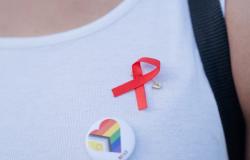A press conference was held this morning with several health stakeholders, following figures from Santé Publique France published yesterday regarding the presence of HIV and sexually transmitted infections in Mayotte. Mayotte is the second department most affected by the AIDS virus after Guyana.
Santé Publique France yesterday published the figures for HIV and sexually transmitted infections in Mayotte. Worrying results for the territory which is the second most affected French department. A latent scourge that health professionals are trying to contain to avoid an explosion of cases.
At PMI (Maternal and Child Protection) from Kaweni, parents, children and especially future young mothers are monitored sometimes daily. Here, we welcome dozens of pregnant women, young and old, and the least we can say is that AIDS does not seem to be their first concern.
However, you should know that in Mayotte, one in three women discovers, during their pregnancy, that they have HIV. And despite everything, these late screenings do not worry these women, like this elderly lady who prefers to remain anonymous: “ It’s true, I’ve never really carried out any tests but I’m not worried“Same story for this young mother, who is in turn waiting to be tested,”I’m not worried, I took medication and that’s it“.
A lack of awareness that calls into question 2th French department most affected by the virus…
Within this PMI, women carrying HIV are followed and guided by several midwives, notably Coraline Reymann: “When they arrive, for example for a pregnancy, we ask them if they agree to be screened for sexually transmitted infections and then we send them to the laboratory and they take a blood test. It is possible that the HIV virus or other diseases are transmitted from mother to child, so the earlier we detect it, the more antivirals can be put in place, and therefore treatment to prevent transmission from mother to child. .“
This major public health subject obviously does not leave health stakeholders indifferent. Several systems have been put in place to facilitate screening, as doctor Maxime Ransay-Colle explains: “In reality, today we are screening more and we are screening better, we are better targeting the people most at risk, so obviously we are better detecting the people who are affected. So initially, without being good news, it allows us to have a good vision of what is happening in the territory, it is the first step and at the same time we take better care of these people and we avoid the spread “.
And to avoid this spread, health professionals are traveling to residents to distribute condoms as well as free tests offered to those under 26 or even TROD tests (the Rapid Diagnostic Orientation Test) says Pierre Sauves, the director of the PMI: “We trained these agents to carry out TRODs, which allows us to go a little further in prevention by doing this detection not only for HIV but also for hepatitis.”
From December 2 to 8, screening trucks must travel throughout the territory of Mayotte to meet the population, another way of getting closer to all these people who carry HIV but are still unaware of it.






